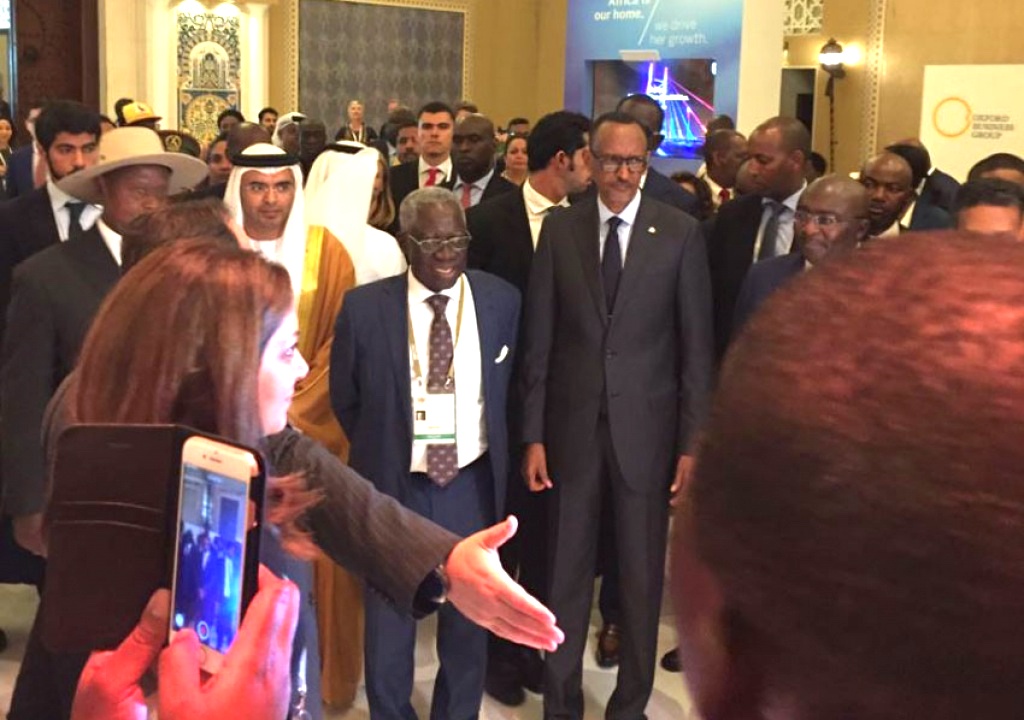African countries have come a long way in terms of connectivity, by expanding digital infrastructure and opening up their economies to new growth opportunities, according to a number of Africa-based entrepreneurs who spoke at the Fourth Global Business Forum on Africa in Dubai.
The high-profile forum, held under the patronage of HH Sheikh Mohammed bin Rashid Al Maktoum, Vice President and Prime Minister of the UAE and Ruler of Dubai, is being organised by the Dubai Chamber of Commerce and Industry.
Sharing their valuable insights during a panel session entitled “For Africa By Africa–New Partnerships for Growth”, were Tonye Cole, Co-Founder and Group Executive Director at Nigeria’s Sahara Group, and Chris Folayan, Founder and Chief Executive Officer of the Mall for Africa/Mall for the World in Nigeria.

The panelists examined recent trends that have reshaped African economies and the continent’s entrepreneurial eco-system, as well as the opportunities that are opening up for partners as African development follows new models.
Cole described the drop in commodity prices over the last few years as one of the best things that have happened to Africa as it forced governments to focus on economic diversification and come up with new policies and innovative approaches, adding that he has seen positive changes happening on this front in Nigeria.
Chinese mines in Africa provide better roads, not more jobs for locals
“There was little interest in the intra-African trade prior to this commodity price correction. This has changed a lot over the last few years, and we now see a lot of economic and trade blocs across the continent. Moreover, there is a notable uptick in North African trade with Sub-Saharan Africa, which was never the case before,” said Cole.
Sahara Group’s Executive Group Director shared his view that Africa’s digital infrastructure needs to develop and expand to meet growing consumer demand and connect people in ways that physical infrastructure cannot.
For his part, Folayan explained why African businesses must expand their scope beyond metropolitan areas to reach more people in rural areas. With a solid digital infrastructure and improved connectivity, companies can more effectively engage and educate new consumer groups, he noted.
“We’ve seen people even in remote rural areas of Nigeria use our apps. We’ve given them the opportunity to sell their products online to people in the US, the UK or anywhere in the world. Despite the fact that only seven percent of people in Africa have bank accounts, people can use their mobile credit make online payments,” said Folayan.
The Fourth Global Business Forum on Africa is taking place on 1 – 2 November 2017 at Dubai’s Madinat Jumeirah. The event is bringing together heads of state, top-level decision makers, government and business elite, and nascent entrepreneurs from the UAE and Africa.
Sponsors and partners for the 2017 edition of the event include: Dubai Islamic Bank (DIB) as a gold sponsor, and Standard Bank–South Africa, Invest South Africa and Hamdan Bin Mohammed Bin Rashid Al Maktoum International Photography Award (HIPA) as supporting partners.
The Global Business Forum on Africa has become a reliable platform for exploring the continent’s economic outlook–both current and future–as evidenced by the high-profile attendees that have participated in the event since its inception. To date, the series has hosted 10 heads of state, 74 ministers and dignitaries, and 5,400 executives, as well as a host of influential decision makers from 65 countries around the world.
Report courtesy CPI Financial










